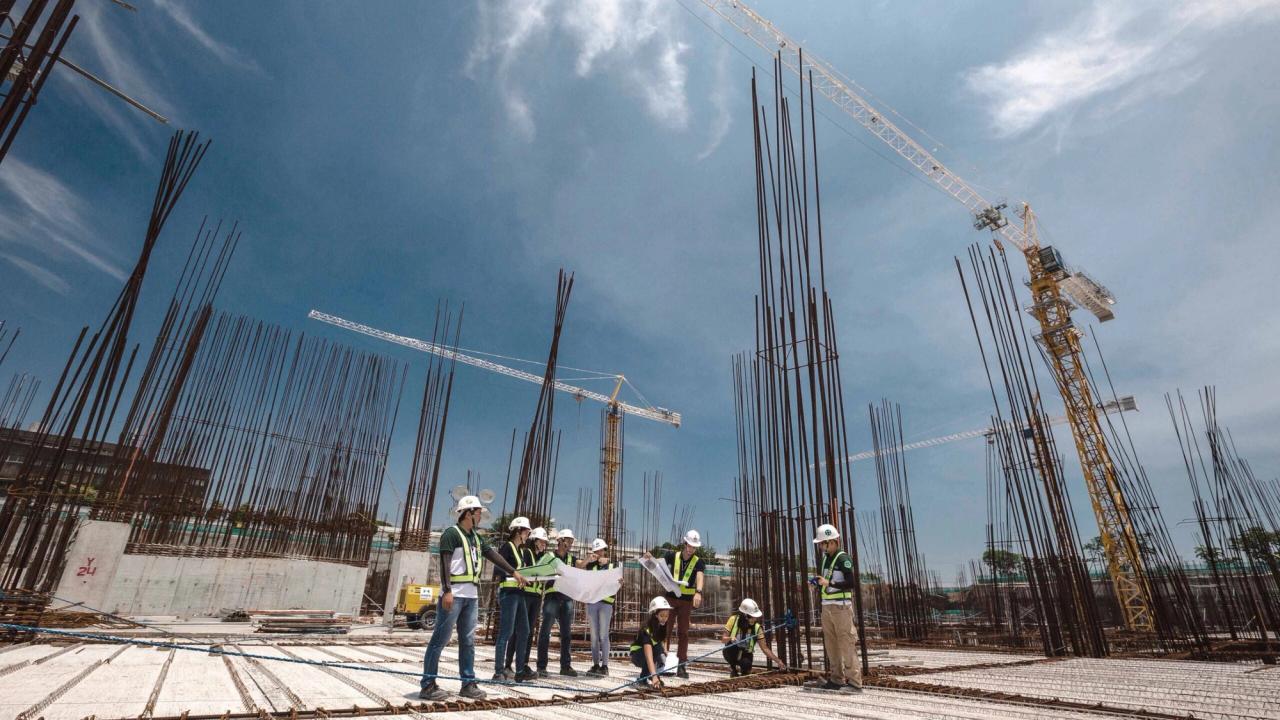Material Use and Management
As Ayala Land expands its real estate portfolio, the company strengthens its commitment to the efficient use and management of its construction materials. In 2024, ongoing projects utilized 54,415 metric tons of steel and rebar and 164,533 metric tons of cement.
Purchased Goods and Services (PG&S) contribute to 75% of Ayala Land's total baseline greenhouse gas (GHG) emissions, predominantly due to the construction activities of Makati Development Corporation (MDC). Notably, 80% of these emissions stem from the use of cement, steel, and rebar materials in construction. In response, MDC has launched initiatives aimed at reducing the embodied carbon1 in these building materials. Aligned with Ayala Land's Science-Based Targets initiative (SBTi) commitment of Net Zero GHG emissions by 2050, MDC continues to engage the supply chain to further reduce Scope 3 emissions associated with the procurement, use, and recycling of construction materials.
Strategic Partnerships Towards Decarbonization of the Supply Chain
Ayala Land Inc. (ALI) and Makati Development Corporation (MDC) are taking significant steps in their commitment to decarbonization and circular economy through a partnership with SteelAsia Manufacturing (SteelAsia), the Philippines' leading steelmaking company.
The three companies signed an agreement in February last year to embark on knowledge-sharing, circular economy program and collaborate on decarbonization pathways. As part of the agreement, SteelAsia retrieved 208 tons of steel debris from a mall redevelopment project of Ayala Land, which was used to manufacture new steel rebars.
In 2024, Ayala Land sourced 24% of its steel purchases from SteelAsia, which consisted of green steel made from recycled materials and produced using electricity from renewable sources. Steel rebars account for nearly half of Ayala Land's supply chat and reduce Scope 3 GHG emissions from construction projects, setting an example of sustainable practices across the industry.
In March 2025, SteelAsia obtained its external assurance from DNV (Det Norske Veritas), validating that the steel produced by the Calaca Plant has 84% lower GHG emissions compared to steel produced in conventional steel plants.
